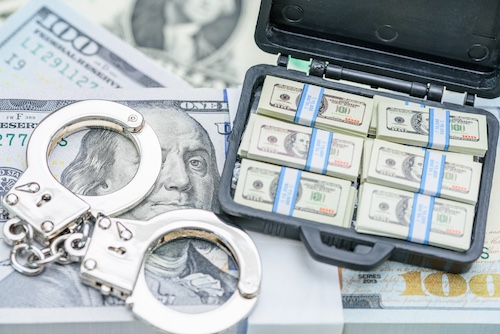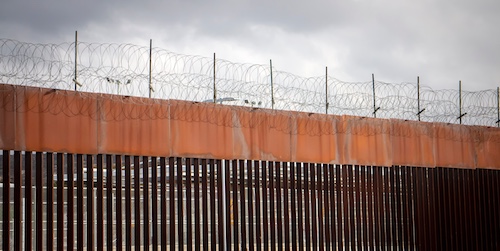Defending Against Federal Smuggling Charges in Texas
Federal smuggling charges carry harsh penalties, including long prison terms, heavy fines, and permanent damage to your record. Whether the case involves alien smuggling, illegal goods, or false documents, federal prosecutors build strong cases with serious consequences. In Texas, where border enforcement is aggressive, these charges are filed often and pursued hard. If you are under investigation or have been arrested, understanding your rights and legal options is critical.
In this blog, you will learn what federal smuggling charges involve, common ways these charges arise, possible penalties, and key defense strategies you can discuss with an experienced federal crimes lawyer in The Woodlands.
Understanding Federal Smuggling Charges
Federal smuggling charges carry serious legal consequences. To build a strong defense, you must first understand what these charges involve and how the law applies.
What Is Considered Smuggling Under Federal Law
Smuggling includes the illegal movement of people, goods, or merchandise across borders. Under 8 U.S. Code § 1324, it is a federal offense to bring unauthorized aliens into the United States, transport them within the country, or conceal them from law enforcement. This statute also covers actions taken for financial gain or commercial advantage.
In addition to human smuggling, 18 U.S. Code § 545 makes it a federal crime to smuggle goods into the country while avoiding customs duties or laws. This includes knowingly importing merchandise contrary to law. Both statutes are frequently used by federal prosecutors to file smuggling charges.
Alien Smuggling and Human Smuggling
Alien smuggling refers to bringing unauthorized aliens into the country or helping them stay unlawfully. Human smuggling is the broader term and may involve crossing borders or assisting with illegal entry. These offenses often occur near the Texas-Mexico border and can involve organized smuggling operations.
Charges often increase in severity when the act results in serious bodily injury, death, or involves minors. If the smuggling was done for profit, this may also trigger enhanced penalties.
Key Legal Elements Federal Prosecutors Must Prove
To convict someone of federal smuggling, the government must prove the defendant acted knowingly and intentionally. This means the person knew they were breaking the law and understood that their actions involved unauthorized aliens or smuggled goods. Prosecutors must also show a link to financial gain or intent to violate immigration laws.
If the smuggling involved domestic transportation of such aliens or merchandise, prosecutors may rely on vehicle records, surveillance, or physical evidence found in the defendant’s possession. These elements must meet the federal standard of evidence in court.
Why Federal Charges Are More Severe
Federal smuggling charges differ from state offenses because they fall under the authority of the federal government. Penalties include federal prison time, asset forfeiture, and a permanent criminal record. If the offense involved false statements or resulted in bodily harm, the court may apply enhanced sentencing.
Common Scenarios Leading to Smuggling Charges
Understanding how federal smuggling charges arise can help you recognize potential legal risks and prepare a proper defense.
Transporting Unauthorized Aliens
One of the most common scenarios involves transporting unauthorized aliens across state or national borders. It is illegal to knowingly bring unauthorized individuals into the country or assist them in remaining here unlawfully. Even driving them within Texas for a fee can lead to charges. If prosecutors can show that the transportation was for financial gain or commercial advantage, penalties increase.
Operating or Aiding a Smuggling Operation
Participating in a smuggling operation, even in a minor role, can result in federal charges. This includes acting as a lookout, providing shelter, or using your vehicle to move people or goods. The federal government often targets individuals involved in organized human smuggling activities near the border. A person does not have to be the one physically crossing the border to face charges.
Smuggling Goods or Merchandise
Charges are not limited to people. Smuggling goods into the United States without proper documentation is a federal crime. This includes knowingly importing such merchandise contrary to law. Items frequently involved in these cases include illegal drugs, firearms, and untaxed goods. If the goods are found in the defendant’s possession and the evidence links them to unlawful activity, formal charges may follow.
Use of False Statements and Documents
Providing false information to immigration officers or using fake documents is another path to smuggling charges. This may involve using fake passports, forged travel records, or lying about the purpose of transporting individuals. These actions violate federal law and often accompany alien smuggling charges. Prosecutors use these facts to show intent and actual knowledge of the illegal activity.
Causing Bodily Injury or Acting with Reckless Disregard
If smuggling activity results in serious bodily injury or death, penalties increase under federal law. The government may apply enhanced sentencing provisions if the defendant acted with reckless disregard for human life. Leaving individuals in dangerous conditions or abandoning them in remote areas can lead to severe penalties, including long prison terms.
Profit-Driven Motive
Smuggling done for financial gain or commercial benefit often triggers harsher outcomes. Whether the payment is direct or indirect, any financial incentive strengthens the prosecution’s case. Courts treat profit-driven smuggling as more serious than acts done under coercion or pressure. Federal prosecutors will look for evidence such as bank transfers, text messages, or witness statements to prove this element.
Strategic Defenses Against Federal Smuggling Charges
A strong defense can challenge the federal government’s case and protect your rights against federal smuggling charges.
Insufficient Evidence
Federal prosecutors must prove guilt beyond a reasonable doubt. If the evidence is weak or incomplete, the case may not meet the legal standard for conviction. Defense attorneys often question how evidence was obtained and whether it was handled lawfully. If law enforcement violated your constitutional rights, the court may exclude the evidence. Lack of credible witnesses, missing surveillance, or unreliable records can also form the basis for this defense.
Lack of Knowledge or Intent
A key element in federal smuggling charges is that the defendant knowingly committed the offense. If you did not know that the individuals were unauthorized aliens or that the goods were illegal, this weakens the prosecution’s case. Showing that you acted without actual knowledge or intent may prevent conviction. This defense often applies in cases where a driver was unaware of the contents of a vehicle or believed the people had legal status.
Mistaken Identity
In high-pressure investigations, errors can occur. If law enforcement or witnesses identified the wrong person, the defense may argue mistaken identity. Surveillance footage, phone records, or alibi witnesses can support this claim. When the connection between the defendant and the smuggling operation is unclear, this defense can be effective.
Coercion or Duress
Some individuals are forced into smuggling under threat. If you acted under fear of serious bodily injury or harm, your attorney may raise duress as a defense. This strategy requires proof that the threat was real and immediate, and that you had no reasonable chance to escape the situation. Courts consider duress carefully, especially when financial gain or reckless behavior is not involved.
No Financial Gain or Commercial Advantage
Federal law increases penalties when smuggling is done for financial benefit. If the government cannot prove that you received payment or other compensation, this may reduce charges or penalties. This defense focuses on showing that your actions were not driven by profit or commercial intent. Bank statements, phone logs, or witness testimony can help challenge the claim of financial motive.
Unlawful Search or Seizure
Federal cases often rely on evidence collected during traffic stops, border checks, or home searches. If officers violated legal procedures, the defense can file a motion to suppress the evidence. This includes searches conducted without a warrant, stops without probable cause, or failure to advise of legal rights. If the court finds that the evidence was obtained unlawfully, it may be excluded, weakening the prosecution’s case.
Penalties and Consequences If Convicted
Conviction for federal smuggling charges leads to severe penalties that affect both your freedom and future.
Prison Time and Fines
Federal smuggling is classified as a felony offense. Under 8 U.S. Code § 1324, a basic conviction can result in up to five years in federal prison for each count. If the offense involved serious bodily injury, death, or smuggling for commercial advantage or financial gain, the sentence can increase to up to 20 years. In addition to prison, courts may impose large fines based on the number of individuals involved or the value of the smuggled goods.
Enhanced Penalties
Penalties become more severe if certain factors are present. These include smuggling involving minors, repeat offenses, use of weapons, or actions that place others at risk. If the smuggling caused bodily injury or death, courts may apply enhanced sentencing rules. These enhancements reflect the court’s view that the crime posed a higher level of danger.
Forfeiture of Property
The federal government may seize property connected to the offense. This includes vehicles used in domestic transportation of unauthorized aliens or property bought with proceeds from the smuggling operation. Under federal forfeiture laws, the government does not need a separate conviction to take ownership of these assets. A person convicted may lose homes, bank accounts, and personal items tied to the crime.
Immigration Consequences
For non-citizens, a conviction may lead to removal from the United States. The offense of bringing unauthorized aliens into the country is considered a ground for deportation. A permanent record of a federal offense can also block future legal status, reentry, or applications for lawful permanent residency. These consequences apply even if the sentence is reduced or probation is granted.
Loss of Rights and Future Impact
Felony convictions result in long-term restrictions. This includes the loss of voting rights, firearm possession, and eligibility for certain jobs or licenses. Background checks for employment, housing, or education may reveal the conviction. The damage to your record can affect your future long after serving your sentence. A federal crimes lawyer can advise you on the full range of consequences and how to limit them.
Contact an Experienced Woodlands Federal Crimes Attorney Today!
If you are facing federal smuggling charges, the time to act is now. These charges carry serious consequences, including long-term prison sentences, heavy fines, and lasting damage to your record and reputation. The federal government has the resources to build strong cases, but you have the right to fight back with the help of skilled legal counsel.
Contact us at 832-326-2932 for a free case review today!







